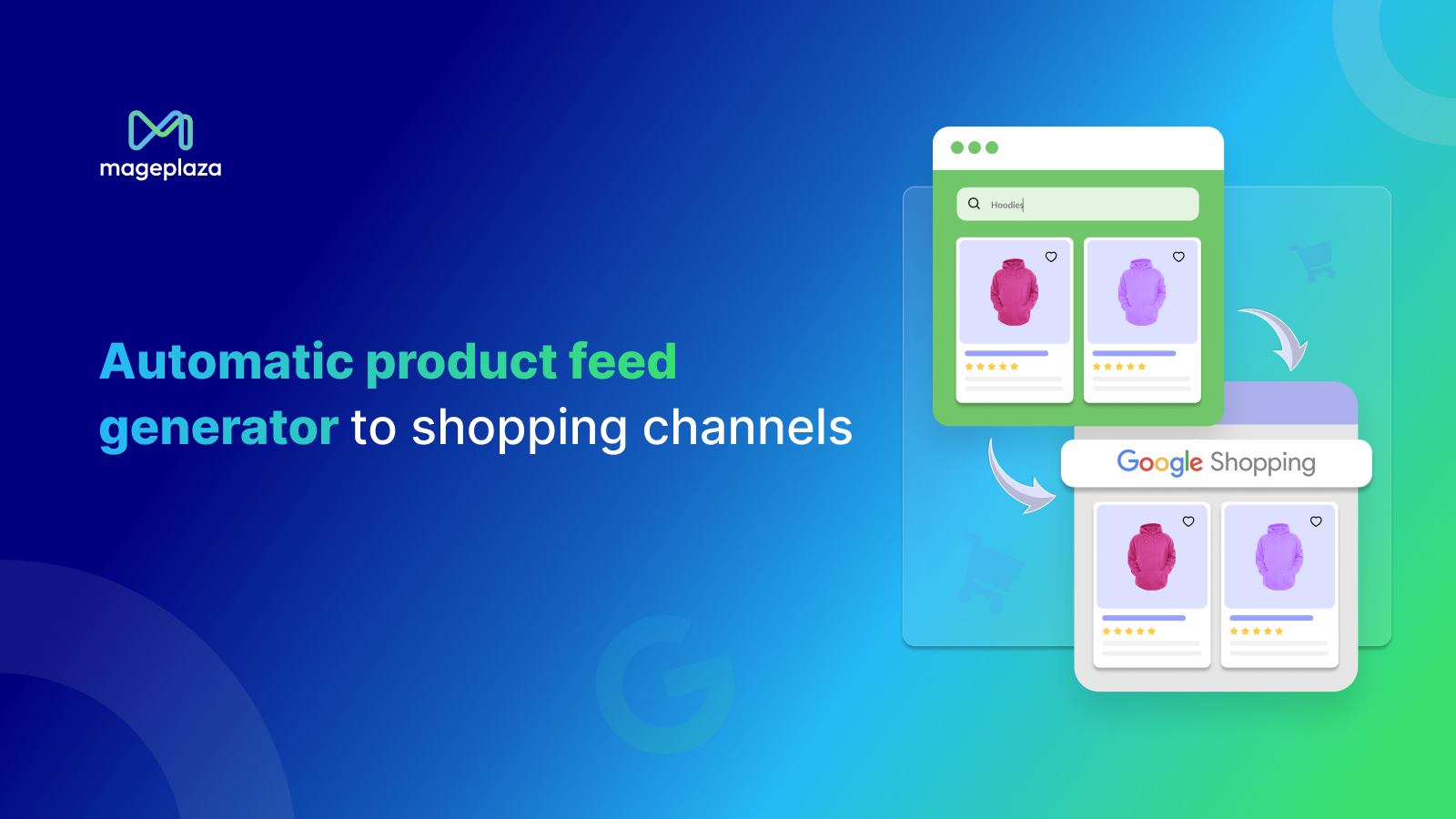Top 15 Shopify Tips for Success of Beginners in 2024
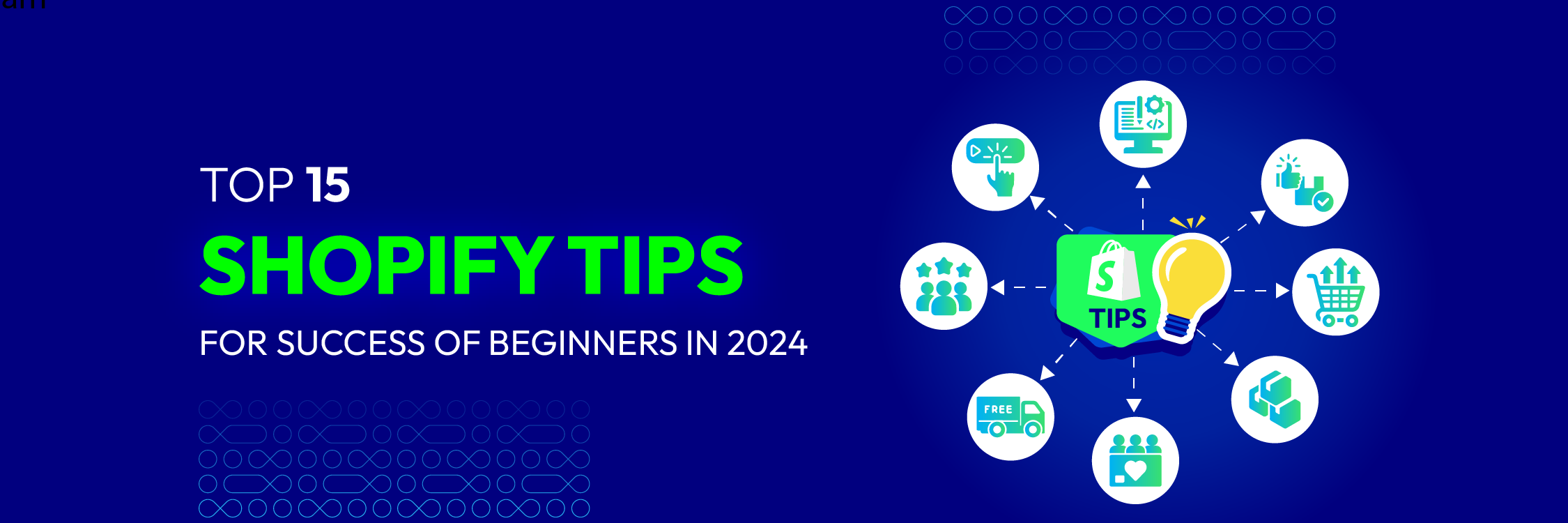
Shopify stands out as a leading commerce platform supporting both online and brick-and-mortar sales. While setting up an online store on Shopify is straightforward, standing out in the competitive market requires strategic approaches.
Whether you’re a new seller or an experienced one, this guide provides 15 practical Shopify tips and tricks to improve your business management and boost revenue. Explore real and actionable advice to build and sustain a successful online business on Shopify.
What is Shopify?

Shopify is an eCommerce solution that facilitates the creation of online stores without the need for extensive technical skills.
With a versatile platform offering services like Shopify Payments, Shop Pay accelerated checkout, and inventory management, individuals without prior online selling experience can construct a comprehensive store using Shopify’s built-in features and top Shopify apps.
The flexible pricing, with various tiers based on sellers’ needs, makes Shopify suitable for both beginners and enterprises, ensuring it can meet a diverse range of requirements.
Mageplaza Product Feed for Shopify
Automate and optimize your feed uploads across multi-channels.
Check it out!
Highlight the importance of utilizing effective strategies to succeed on Shopify
Launching an online store stands out as a highly gratifying entrepreneurial pursuit. As the proprietor, you enjoy the freedom of being your own boss, determining your work hours, and crafting your own products. Additionally, the opportunity to positively impact people worldwide arises as you share your products with a global audience.
However, it’s no secret that initiating a shop comes with its set of challenges, particularly for those lacking prior experience. To enhance your likelihood of success, we’ve compiled 15 Shopify tips for success in running an online store, aiming to empower you to increase online sales and thrive as a successful business owner.
15 Shopify Tips for Beginners
Target the right customer segment

To achieve success, understanding your ideal customer is crucial. Identify their preferences and needs. Tailor your merchandise, content, and marketing strategies accordingly.
For instance, if your target customer is a busy entrepreneur, consider offering products that simplify their life, such as organizational tools, time-saving appliances, or stylish and comfortable clothing.
Verify your products
Before dedicating resources to developing a product, it is crucial to confirm its demand.
Product idea validation minimizes the risk of failure and enhances the likelihood of success. It enables an evaluation of whether a product addresses a specific need or is anticipated to be in high demand before committing time and financial resources.
One effective method for validating product ideas is to seek feedback during the early stages of development. Customer input aids in assessing their needs and allows for necessary adjustments to the product before its market debut. Additionally, customers can provide valuable insights on aspects such as pricing, packaging, and marketing strategies, contributing significantly to the success of your online store.
Optimize product pages
Boosting ecommerce sales is most effectively achieved by enhancing your product pages. These pages visually represent products, provide valuable information, and persuade shoppers to make a purchase. Incorporating clean design, compelling product descriptions, and customer testimonials are essential elements for effective product pages.
Invest in website design

Effective website design is crucial for the success of your ecommerce venture. A significant 50% of consumers consider a website’s design important for a company’s brand. Given the surge in mobile online shopping, it’s essential to ensure your website is mobile-friendly.
Investing in web design is imperative for three key reasons:
-
First Impressions Matter: Your website is the initial encounter a customer has with your store. If it lacks a compelling design, it can turn away 42% of potential customers, discouraging them from returning.
-
Impact on Conversion Rates: Websites play a pivotal role in conversion rates. A well-designed website facilitates customers in finding what they need effortlessly, ultimately boosting sales.
-
Competitive Edge: A well-crafted homepage and product pages contribute to standing out from the competition. A visually appealing and user-friendly website builds trust with online shoppers, persuading them to make a purchase.
Display amazing product images
The influential assets of your store are the product images and displays, which significantly impact customers’ purchasing decisions.
According to MIT, our brains process image information in just 13 milliseconds. Images convey information more rapidly than text, and incorporating a 360-degree product display not only saves customers time but also enables them to interact with products similarly to their in-store experiences. Implementing this strategy is a top-notch Shopify tip to enhance your store in the upcoming months.
Clarify the return policy
Having a well-defined return policy is instrumental in establishing trust with potential customers and can contribute to increased sales. In fact, the easy returns policy accounts for 33% of internet users purchasing a product when shopping online worldwide.
Ensure your policy includes explicit instructions on the return process, specifies eligible items for return, and outlines the timeframe within which customers can return items. Additionally, including clear contact information is essential for addressing any customer queries related to returns.
Ensure seamless customer support
Distinguishing your business from competitors is best achieved through outstanding customer service. Provide support channels such as live chat, email, phone, or social media to cater to diverse customer preferences.
Respond promptly and efficiently to customer inquiries to enhance the customer experience. Additionally, offer excellent service by providing valuable resources on your website, such as product guides, size charts, and FAQ pages, to assist customers proactively.
Make use of email marketing

Email stands out as one of the consistently effective channels for acquiring new customers. Unlike channels like search that may take time to generate organic traffic, email marketing can yield immediate results. Reportedly, the return on investment (ROI) for email marketing is £42 for every pound spent by 2019, signifying a significant enhancement in the overall value of your business.
Hence, investing in building an email list for store promotion is crucial. To streamline the process, set up automated email marketing campaigns tailored to boost revenue. This approach allows you to leverage the power of email without spending excessive time on manual writing and sending.
Build customer loyalty programs
In the digital landscape, where customers have easy access to information, eCommerce competition is intense. For instance, a customer can simultaneously navigate your Shopify store and your competitor’s. Establishing a robust connection with customers through a loyalty program becomes crucial in influencing them to choose your brand over others.
A loyalty program involves rewarding customers for engaging in desired activities for the brand. These rewards may include discounts, free shipping codes, or accumulating user points for future purchases.
Integrate social proof in product reviews
Social proof, a psychological phenomenon introduced by Robert Cialdini in 1984, plays a pivotal role in shaping perceptions. Essentially, it suggests that if numerous customers affirm the quality of a product, new customers are likely to perceive it positively. In marketing, social proof manifests through reviews, existing customers or partners, media coverage, and other forms.
Leveraging social proof is a valuable Shopify tip for easily earning trust from customers. According to Power Reviews, 98% of customers said reviews are important for making a purchasing decision, highlighting the significance of incorporating social proof into your strategy.
Design impressive CTA
Include a call-to-action (CTA) in your Shopify tips and tricks checklist. Once you’ve taken the initial steps in setting up your Shopify store, such as applying the core theme, configuring page navigation, and organizing product displays, the next crucial step is encouraging visitors to take specific actions on your page. This is where implementing call-to-action (CTA) elements becomes essential.
CTAs come in various forms, including text boxes, images, and buttons, and can be strategically placed throughout the page – whether at the top, scattered across, or positioned at the bottom.
Engage online sales on social media
Incorporating social media channels into your Shopify tips is essential. With the continual rise in social media usage, connecting with customers becomes pivotal. Below is the percentage of internet users who use social networks to find out more about brands and products, divided by age and gender.
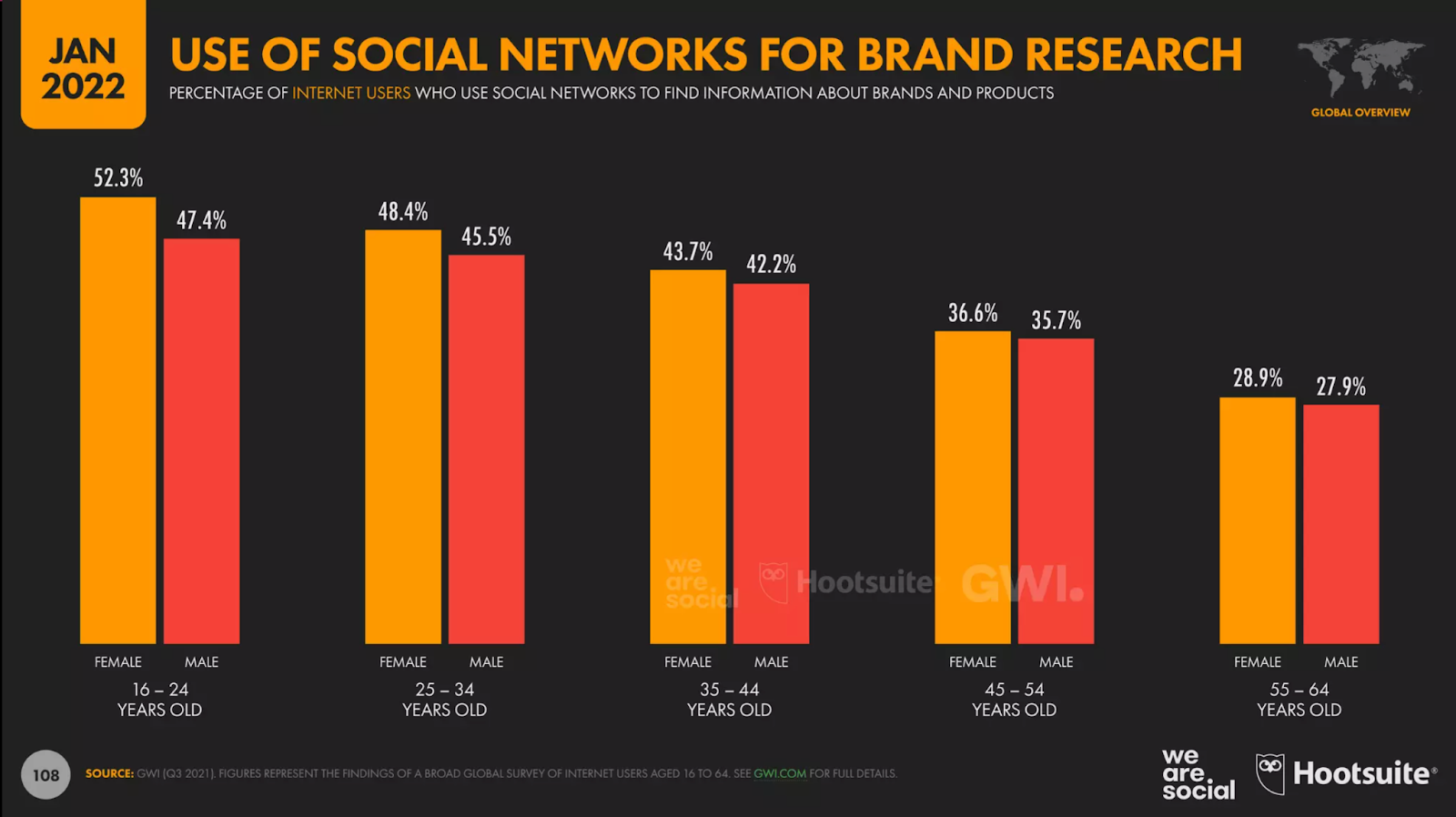
Source: DataReportal
Social media’s interactive nature allows users to share content efficiently, making it a powerful tool for reaching and engaging online customers.
Moreover, a product feed extension, acting as a connector linking your online store to diverse shopping channels like Google Shopping, Amazon, eBay, Bing, and Facebook, might be a good choice. This tool simplifies the process of generating, uploading, and overseeing product feeds on various shopping platforms, thereby boosting the visibility of your store.
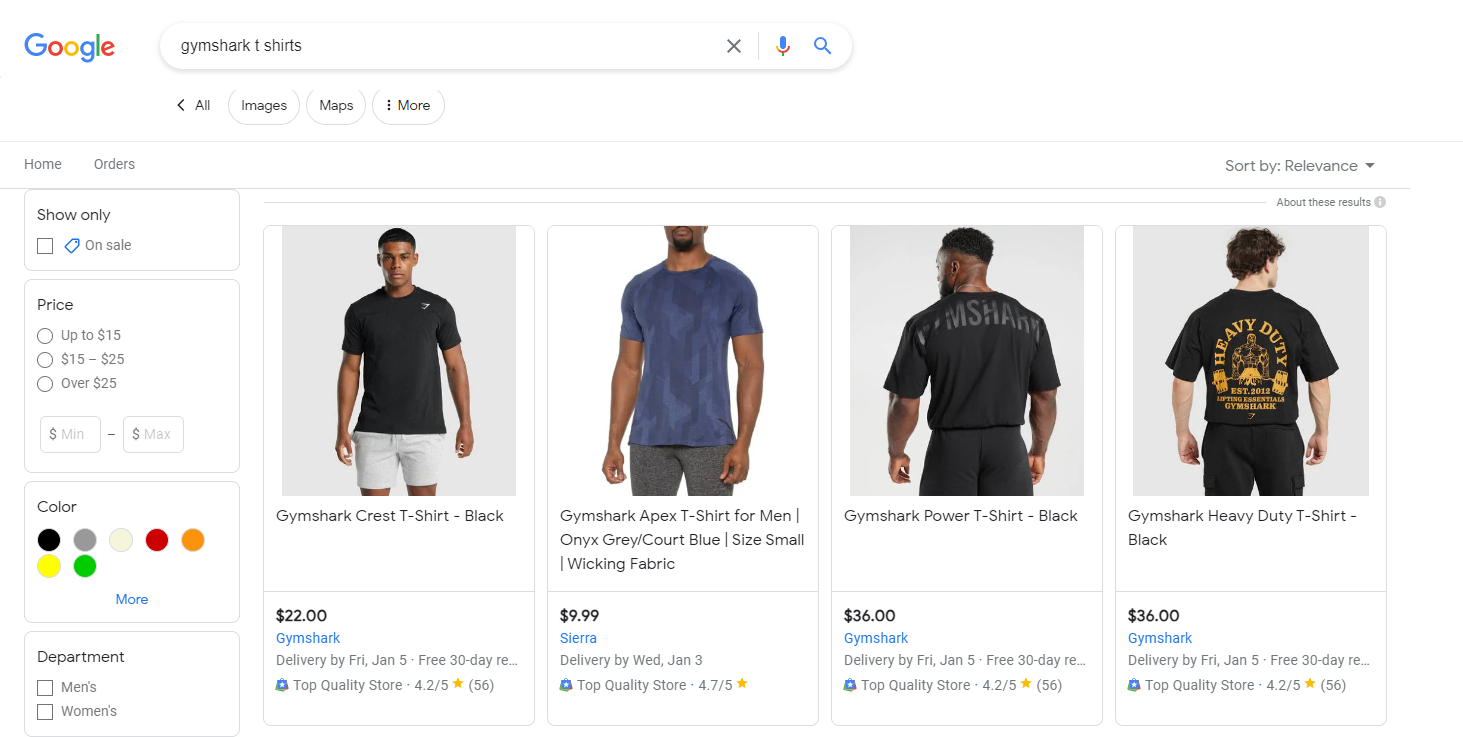
While numerous campaigns employ product feeds for transmitting product data, skilled sellers can turn this into a competitive advantage. Optimization enhances overall performance by elevating ad rank and quality scores, ensuring precise data, offering flexibility for ecommerce content, and ultimately contributing to the growth of Shopify sales.
Optimize search engine
While it may take some time to gain momentum, search engines present a rare chance to establish consistent, compounding web traffic.
A successful search strategy encompasses various steps, such as developing a keyword strategy, conducting detailed keyword research, optimizing site architecture and performance (e.g., category pages), and creating backlinks to enhance your website’s visibility.
SEO is divided into on-page and off-page categories.
-
Off-page SEO involves external efforts, mainly link building, to improve site rankings. Google considers factors like link quality. Tasks include increasing referring domains, assessing linking page authority, and considering link attributes.
-
On-page SEO focuses on optimizing website elements like content and HTML source code. Google evaluates content relevance to search queries. Strategies include using keywords in titles and content, optimizing tags and images, and adding internal and external links.
Offer upselling strategies
One of the most valuable Shopify tips for your online store is upselling, which encourages customers to purchase more expensive yet relevant items than their initial choices. Research indicates a 27% likelihood of a first-time buyer returning, increasing to 49% after the second purchase.
Shopify facilitates post-purchase upselling on the order completion page, allowing store owners to promote additional items to customers who have already made a purchase. In contrast, pre-purchase upsells occur before the order is finalized. Consequently, post-purchase upsells are generally preferred as they don’t pose a risk to the conversion of initial orders.
Offer free shipping
Free shipping holds significant sway over approximately 75% of all shoppers in 2022. In 2021, 69% of Shopify merchants incorporated free shipping into their strategies to boost sales and align with customer expectations.
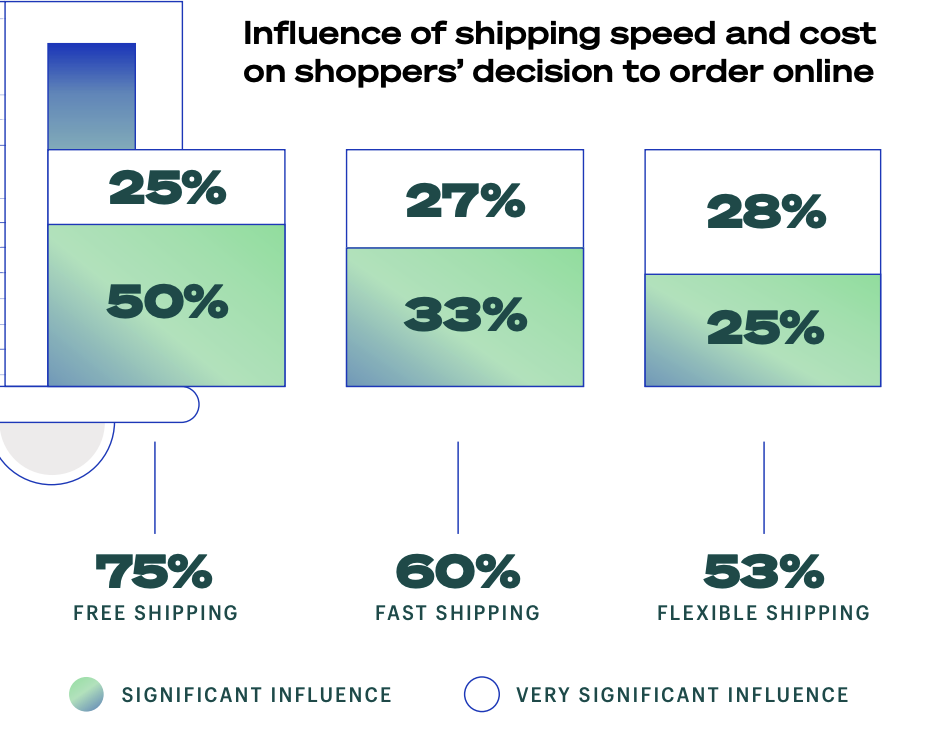
Source: Shopify’s Future of Commerce 2022 Report
The allure of free shipping extends beyond a mere transactional benefit; it fosters loyalty among customers who value the convenience of not having to pay for shipping. If your ecommerce store can provide free shipping without compromising profitability, it stands as a compelling marketing strategy.
Final words
Embark on business growth by adopting the role of a Shopify entrepreneur with our practical tips. Use the insights provided to enhance your Shopify page and overall business performance. Start by selecting a task—whether it’s comfortable, profitable, or easy to implement—and take that crucial first step toward improvement.


